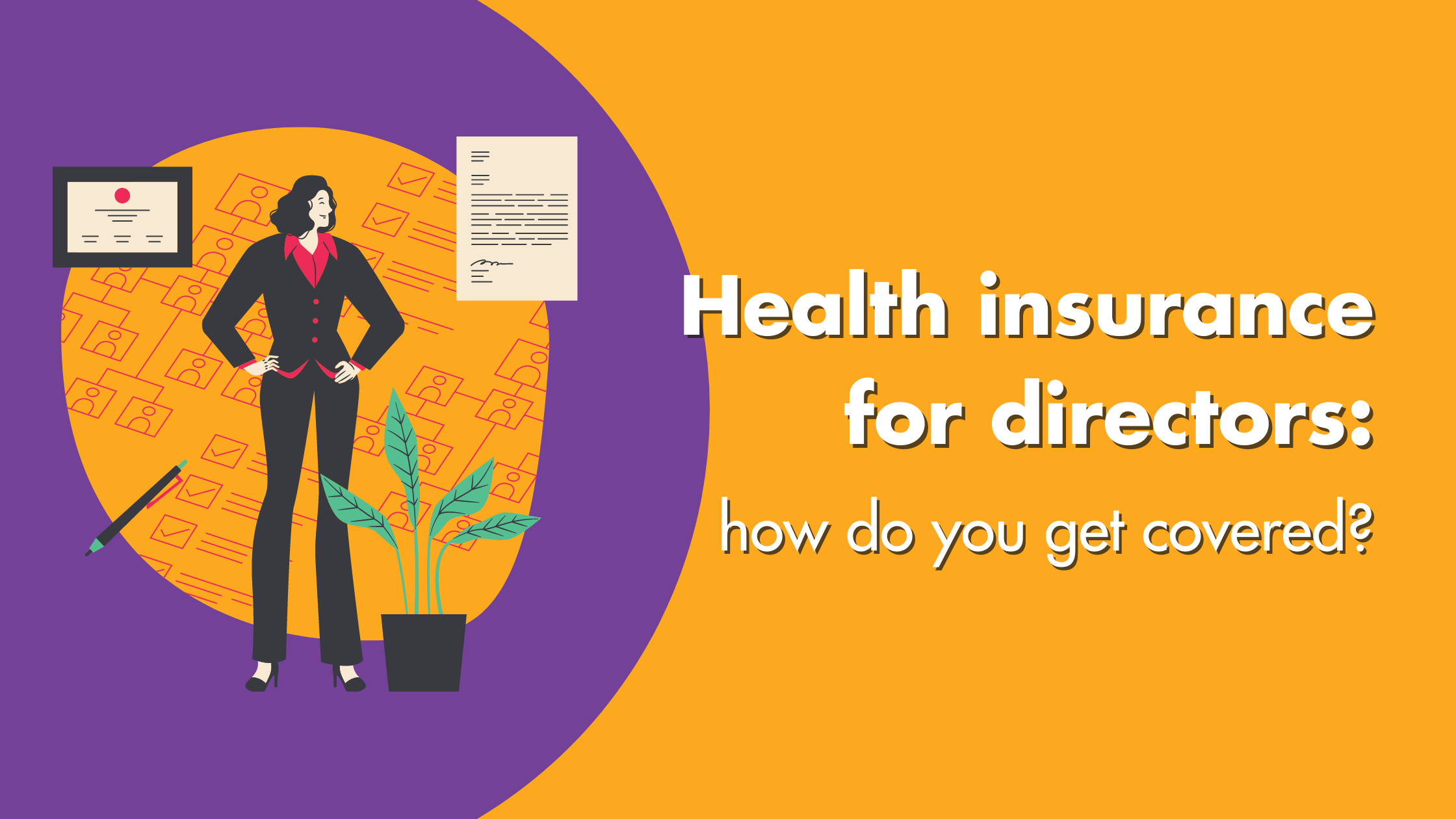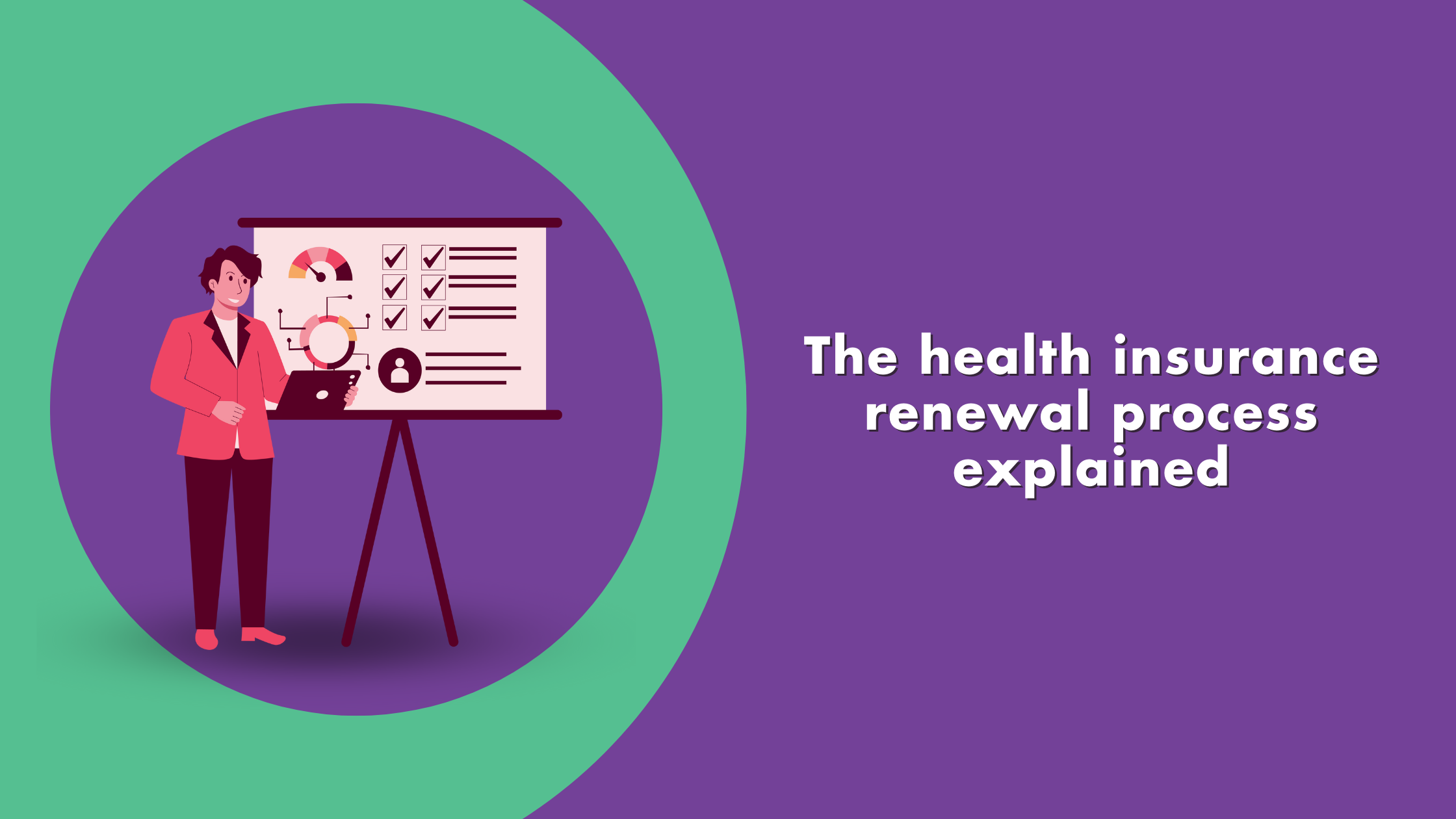If you’re a small business owner running a limited company, you may be pondering the best way to get private medical insurance. After all, you’ll want to make the swiftest possible recovery in the event of ill-health or injury – and that’s where director health insurance comes in.
In this article we explain:
- What cover is available to limited company owners
- How the cost of director health insurance is worked out
- The tax implications of getting private health cover
What kind of cover can business owners get?
There are two main ways that you can take out health insurance as a company director:
- Get cover as part of a wider Business Health Insurance scheme
- Set up a director health insurance plan solely for you
To set up a Business Health Insurance scheme you must have at least three employees. However, if you only want to cover yourself with director health insurance, then you can create a Private Medical Health Insurance policy which is run through your limited company.
Health insurance policies feature a wide variety of inclusions and exclusions. What you get in your insurance policy will depend on how far your budget stretches, the type of health cover you want, and what the insurer is willing to offer. And how well you negotiate!
That’s why it’s important to thoroughly research the market and think carefully about what you need before deciding on an insurance plan. As an insurance broker, we specialise in helping small business owners better understand how the industry works and how they can get the cover they need at the best possible price.
Private health insurance policies often include:
- Medical tests (such as blood and urine tests)
- Surgery, as an inpatient or day patient (for example, heart surgery, cancer removal)
- Outpatient tests, consultations and therapy (for example, post-surgical care and physiotherapy)
- Hospital stays and nursing care
- Treatment during the early stages of chronic conditions
- Drugs, which may include drugs not available on the NHS due to cost
But they typically exclude:
- Eye care
- Dentistry
- Pre-existing health conditions (such as asthma, diabetes and arthritis)
- Alcohol and substance abuse
- Prescription drugs
- Kidney dialysis
- Pregnancy (though complications arising from childbirth are sometimes covered)
- HIV & AIDS
- Cosmetic treatment
- Fertility treatments
- Mobility aids (such as wheelchairs and mobility scooters)
- Self-inflicted injuries (including those suffered as a result of dangerous hobbies, such as sky-diving)
How much does director health insurance cost?
There are a range of factors which influence the cost of the premium. Basically, the fitter, healthier and less likely you are to claim on the insurance; the lower the cost will be.
Key factors include:
- Age
- Previous medical history
- Location (the cost of private healthcare will vary depending on where you are)
- Industry/job function (if it’s a hazardous work environment this may influence the premium)
- Whether you’re a smoker or non-smoker
But the cost of director health insurance is also influenced by what you choose to include or exclude in the cover. So it’s important to ask: “What am I most likely to need?” Nobody has a crystal ball (at least one that works!) but we can make an informed calculation based on our lifestyle, workplace environment and medical history.
There may be particular health issues that concern you: eyesight, hearing or back pain, for example. So, if your budget is tight, it’s a good idea to strip it down to what you’ll most likely need.
Another useful tip for lowering the cost, is choosing the “Six Week Option”. This means that if the waiting time on the NHS is six weeks or less, you’ll be treated by them instead of via a private hospital. But if it’s longer, you can claim on the insurance and get treated privately.
The “excess” also influences the cost of paying the premium. The excess is the amount you pay towards a treatment. For example, if you had an excess of £200, you pay £200 towards the treatment but the rest of the amount is covered by your insurance policy.
There’s a tricky balancing act for business owners: do you increase the excess in order to lower the premium? Or are you willing to pay a bigger premium in order to avoid a high excess charge?
Again, it’s useful to get one-to-one advice from industry experts, like ourselves, who can save you a lot of head-scratching by making everything clear and easy to understand.
Is private health insurance tax deductible?
If your limited company pays for the insurance on your behalf, then it is treated as a Benefit in Kind. This means it has to be entered on your P11D tax form (which is used to report expenses and benefits paid to employees and directors which have not been subject to PAYE tax) at the end of each year and counts towards your taxable income.
Meanwhile, your limited company itself will need to pay Employers’ National Insurance on the value of the benefit. So, it’s a double whammy of taxation. However, on the plus side you will get Corporation Tax Relief on the premium.
Which begs the question: is it worth it? This really depends on your individual circumstances. There are many variables which will influence whether it’s best to pay out of personal income or via the company itself. Often, the difference is quite small either way.
The tax implications are best discussed with your accountant.
Director health insurance: get the ball rolling
Now that you’re equipped with a better understanding of how director health insurance works, it’s time to get started. Use the chat-box on the right and tell us about your business and the kind of assistance you’re looking for. No question is too simple and no situation too complicated, honestly!
Author

Author: Charlie Cousins
Founder and Director of Hooray Health & Protection, Charlie Cousins has enjoyed a career in the insurance and financial services industry spanning over the last ten years.








![_HPA24 Advice Firm of the Year [YELLOW] _HPA24 Advice Firm of the Year [YELLOW]](https://hoorayinsurance.co.uk/wp-content/uploads/elementor/thumbs/HPA24-Advice-Firm-of-the-Year-YELLOW-qwfw5zs3ef19fjq6cnwf697rj9gwqbf8o6443qptg0.png)
![_HPA24 Best Small Health Insurance Advice Firm [YELLOW] _HPA24 Best Small Health Insurance Advice Firm [YELLOW]](https://hoorayinsurance.co.uk/wp-content/uploads/elementor/thumbs/HPA24-Best-Small-Health-Insurance-Advice-Firm-YELLOW-qwfw5yu97kzz3xrji5hslrgaxvljimbic1gmmgr7m8.png)
![_HPA24 Best Sales & Retention Advice Team [YELLOW] _HPA24 Best Sales & Retention Advice Team [YELLOW]](https://hoorayinsurance.co.uk/wp-content/uploads/elementor/thumbs/HPA24-Best-Sales-Retention-Advice-Team-YELLOW-qwfw5yu97kzz3xrji5hslrgaxvljimbic1gmmgr7m8.png)
![_HPA24 Best Small Protection Advice Firm [YELLOW] _HPA24 Best Small Protection Advice Firm [YELLOW]](https://hoorayinsurance.co.uk/wp-content/uploads/elementor/thumbs/HPA24-Best-Small-Protection-Advice-Firm-YELLOW-qwfw5zs3ef19fjq6cnwf697rj9gwqbf8o6443qptg0.png)